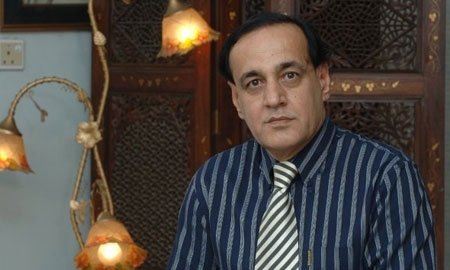Pakistan’s associations with main longtime partner China would remain unaffected by Donald Trump winning the US presidential election, as Islamabad walks a diplomatic tightrope between the two international powers. Pakistan maintains a refined evenness in its relations with China and the US. Even though aligned with the US for military collaboration and counter-terrorism struggles, Pakistan has held together economic ties with Washington’s rival China through initiatives like the China-Pakistan Economic Corridor (CPEC). The US and China’s ties remain strained as they compete for global influence, with the US pursuing to keep up its dominance and China wanting to increase its influence. The two countries are often embroiled in differences over trade, Taiwan, the South China Sea and China’s Belt and Road Initiative. This intricate competition affects Pakistan as it sails across its strategic partnerships with both world powers while dealing with a persistent economic crisis. Pakistan and China are all-weather friends. Foreign Office Spokesperson Mumtaz Zahra Baloch said during a weekly press briefing when asked if Trump’s victory will affect the country’s China policy. They are strategic partners and a source of firmness in our foreign policy. She said Islamabad does not even want to contemplate the probability that any domestic development in another country will affect its friendship with China. She emphasized that Pakistan’s relations with China have grown and expanded over the last several decades, underscoring that the relationship remained immune to developments around the world. She dismissed assertions that President-elect Trump could influence Pakistan’s politics as hypothetical, stressing that Pakistan and the US were old friends preserving relations based on shared reverence, assurance, and non-interference. In response to another question, the spokesperson said President Asif Ali Zardari and Prime Minister Shehbaz Sharif had already congratulated Trump on his presidential election win. Our associations with the United States are decades old, and we look forward to further building up and making bigger Pakistan-US relationship in all fields, she added. As the Deputy Prime Minister said in a tweet we look forward to productive and mutually advantageous collaboration between Pakistan and the United States. Pakistan and the US cultivated strong defense ties during the Cold War days yet differing priorities on numerous subjects tested their ties. However, tensions between the two countries intensified, particularly after 9/11, when US officials censured Pakistan that it was not adequately supporting the American military efforts against the Taliban in Afghanistan. Washington and Islamabad’s ties saw further strain as the former suspected the latter of supporting the Taliban in its 2021 takeover of Kabul, allegations which Islamabad rejected. Strains rose further in 2022 when former PM Imran Khan blamed the Biden administration for organizing his removal via a parliamentary vote, a charge the US denied. Pakistan under Shehbaz Sharif’s two separate stints as prime minister in 2022 and 2024, has attempted to improve its ties with the US. However, the economic realities of a potential Trump administration pose an immediate concern for Pakistan. Economists warn that Trump’s economic policies, including broad tariffs, immigration restrictions, and tax cuts, could reignite inflation. His proposed tariffs, in particular, could increase production costs for US companies, leading to higher prices for goods globally. For an import-reliant country like Pakistan, this would mean higher costs for consumer goods, worsening its balance of payments, which already runs a large trade deficit. Inflation in the US, sparked by Trump’s trade policies may lead to global inflation, putting Pakistan’s economy under additional stress. Instead of hoping for relief from foreign leaders, we should focus on fortifying the country’s economy. This means addressing inflation, encouraging domestic production, and stabilizing the rupee by bolstering foreign reserves. Real progress will come from sound fiscal management and reform.








